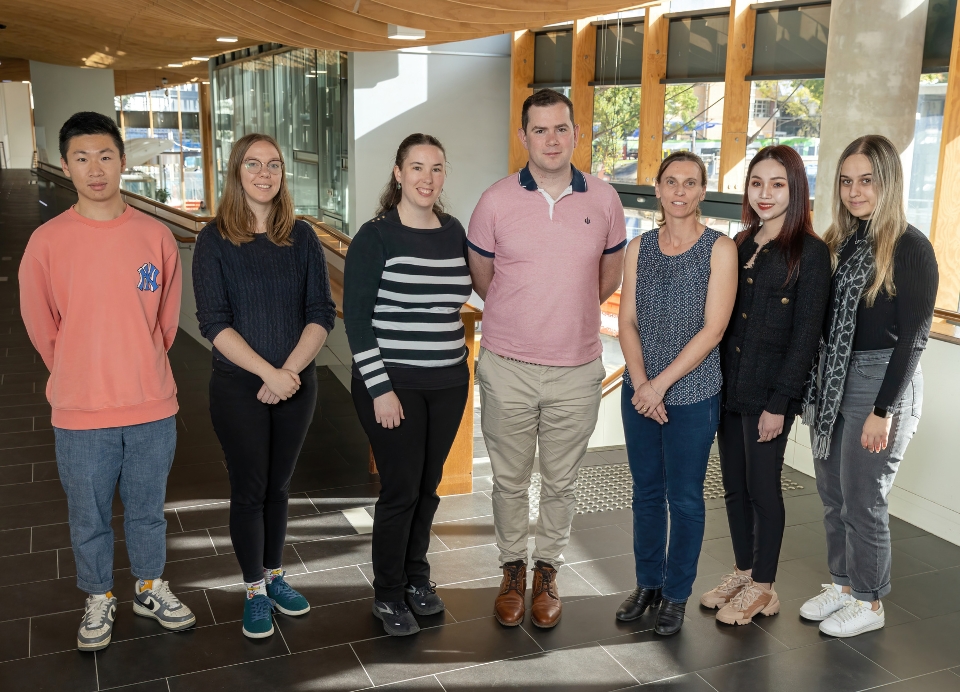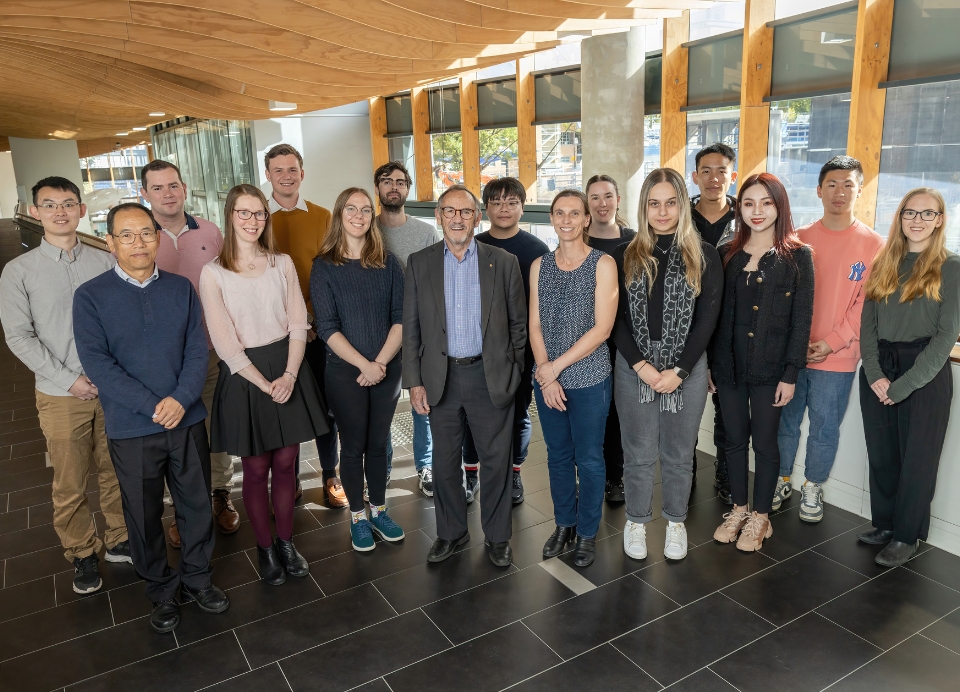Associate Professor Alexandra Corbett completed a Bachelor of Science (Hons) at the University of Melbourne (1998) and PhD at the WEHI (2004). Following two post-doctoral positions at the Lions Eye Institute, UWA (supported by a WA & MG Saw Research Fellowship) and at the Bio21 Institute, she joined Professor Jim McCluskey’s Laboratory in the Department of Microbiology and Immunology in 2012, and now leads her own group. Her research has spanned areas of immunology including T cell biology, vaccine platform technologies, autoimmunity, viral immunology and immune evasion. Alex’s current focus is the biology and immune role of mucosal-associated invariant T (MAIT) cells.
-
Key Achievements
-
Alex has made key discoveries in the field of mucosal-associated invariant T (MAIT) cells, an innate-like population of T cells restricted by the non-polymorphic MHC class I-related protein (MR1). With colleagues at the Universities of Melbourne, Monash and Queensland, she discovered that MAIT cells recognise a new class of antigen; vitamin metabolites made by bacteria and fungi (Nature 2012, 2014), and developed MR1-tetramer reagents to specifically identify MAIT cells in humans and mice. Her NHMRC- and ARC-funded research program seeks to understand what drives MAIT cell protective or pathogenic functions during infection and inflammatory disease, with the ultimate goal of targeting MAIT cells in vaccine or therapeutic strategies. Alex has authored over 60 research articles and reviews. She is a member of ASI and VIIN and has served on the Society for Mucosal Immunology Board of Councillors since 2019.
Publications
Research Groups
-
Corbett Group
Our team study mucosal-associated invariant T (MAIT) cells. We seek to understand how vitamin-based antigens are produced by microorganisms, how MAIT cells detect these antigens and how we can manipulate MAIT cell functions to improve outcomes in infectious and non-infectious diseases.
Lab Team

-
Dr Timothy Patton
Research Officer
-
Xin Yi Lim
Research Assistant
-
Dr Jeremy Rajanayagam
PhD Graduate Researcher
-
Dr Freya Harewood
PhD Graduate Researcher
-
Eleanor Eddy
PhD Graduate Researcher
-
May Pongvattanaporn
Masters Student
-
McCluskey Group
MAIT cells respond to precursors of riboflavin, allowing the immune system to detect microbial invaders. The McCluskey group aims to understand their role in infection/inflammatory conditions and is tackling this question using mouse models, human tissue analysis and structural biology.
If you are interested to collaborate with us, please, feel free to get in touch. Please note that the human and mouse MR1 tetramers developed in our laboratory can now be ordered through the NIH tetramer core facility.
Lab Team

-
Associate Professor Alexandra Corbett
-
-
Group Leader, MAIT Cell Program; NHMRC Emerging Leadership Fellow
-
Bronwyn Meehan
Lab Manager
-
Dr Michael Souter
Research Officer
-
Troi Pediongco
Research Assistant
-
Freya Harewood
PhD Student
-
Dr Huimeng Wang
Research Officer
-
Xin Yi Lim
Research Assistant
-
Lucy Meehan
Research Assistant
-
Adam Nelson
Research Assistant
-
Songyi Li
Masters Student
-
Yilu Huang
Masters Student
Full University of Melbourne profile





